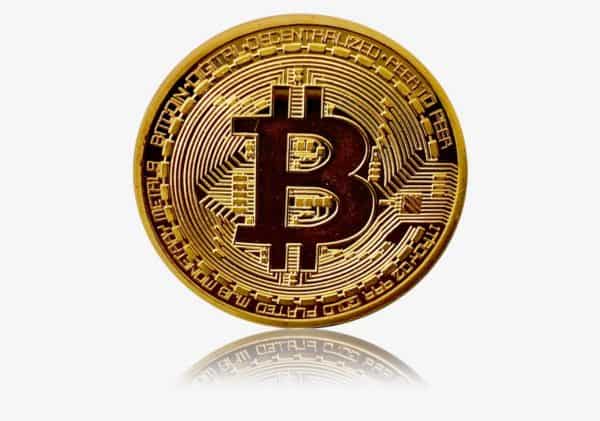Devoted “classic” Bitcoin network advocates claim they will soon be testing their brand confusion grievance against Roger Ver and Bitcoin Cash in court.
Bitcoin (BTC) and Bitcoin Cash (BCH) have been engaged in a highly contentious rivalry ever since Roger Ver and associates “forked” (or modified) Bitcoin (code) last summer to create Bitcoin Cash.
 Ver’s fork and modifications to the protocol, he felt, would make Bitcoin more useful and competitive as a processor of payments (or “means of exchange”), rather than just “a store of value.”
Ver’s fork and modifications to the protocol, he felt, would make Bitcoin more useful and competitive as a processor of payments (or “means of exchange”), rather than just “a store of value.”
Ever since the fork, Bitcoiners have accused Ver of everything from hijacking the Bitcoin brand and deliberately creating brand confusion to physical sabotage of the network and market manipulation. They also claim Bitcoin Cash is centrally-controlled by Ver, a concept anathema in Bitcoin culture.
Devoted Bitcoiners believe that brand confusion created by Ver has compromised the growth of the Bitcoin network itself and the value of Bitcoin as an investment.
Roger Ver, a fervent early adopter and passionate advocate of Bitcoin, has insisted since the fork that Bitcoin Cash is the real Bitcoin. His entire Twitter account is devoted to this claim.
Ver has owned the Bitcoin.com domain name since 2014. He also controls the Bitcoin Twitter handle.
One of the supporters of the lawsuit, Ragnar Lifthrasir, Tweeted a screenshot of brand overlap at Bitcoin.com:
https://twitter.com/Ragnarly/status/988535641070751744
For the record, Ver did not go to jail for fraud. He was jailed while very young for selling powerful fireworks banned in the US because of their potential use as detonators. Ver’s Wikipedia profile says he was jailed for selling “firecrackers.”
“Classic” Bitcoiners have attempted to combat the brand confusion by calling Bitcoin Cash “BCash.” Others have gone even further by calling it “BTrash.”
They have also engaged in numerous ad-hominum attacks of Ver.
Ver was nicknamed “Bitcoin Jesus” because of his tireless advocacy on behalf of early Bitcoin. Since the fork, some have branded him “Bitcoin Judas.”
Roger Ver famously “rage quit” an interview last fall after the interviewer repeatedly called Bitcoin Cash “BCash.” Ver fiercely opposes this colloquial brandname.
The link below is dramatic excerpt of an interview in which Ver famously lost his patience.
It is worth watching the entire interview available through links at Youtube.
Ver posted a qualifying apology on Youtube shortly after the incident.
Lately, Ver has stopped calling his product “Bitcoin Cash” and has started calling it simply “Bitcoin.”
 Bitcoinist.com have pointed out in a recent article that the Bitcoin.com website owned by Ver has also changed the colour of the Bitcoin Cash logo from green to orange, the colour of the original Bitcoin logo, and has excluded the ticker symbols BTC and BCH that may help consumers distinguish between the products.
Bitcoinist.com have pointed out in a recent article that the Bitcoin.com website owned by Ver has also changed the colour of the Bitcoin Cash logo from green to orange, the colour of the original Bitcoin logo, and has excluded the ticker symbols BTC and BCH that may help consumers distinguish between the products.
Bitcoinist also points out that fellow early Bitcoin entrepreneur Eric Voorhees has distanced himself from being roped into Ver’s fervent claims that his is the actual Bitcoin:
Roger – please stop referencing me to back up your opinion that Bitcoin Cash is Bitcoin. It isn't. Bitcoin is the chain originating from the genesis block with the highest accumulated proof of work. The Bitcoin Cash fork failed to gain majority, thus it is not Bitcoin.
— Erik Voorhees (@ErikVoorhees) April 27, 2018
Ver has alleged systematic censorship of his and Bitcoin Cash’s messages across Bitcoin communications channels, particularly on Reddit.
Bitcoinist reported information from the proposed lawsuit’s Telegram group:
“The lawsuit is gaining steam…and has grown to over 600 members in just a couple of days. The group says it has attracted some community “bigwigs”… includ(ing) Bitcoin entrepreneurs Charlie Shrem and Richard Heart, Xotika.TV CEO John Carvalho, and Ibrea.org founder Ragnar Lifthrasir.”
Crowdfund Insider will track any progress in this story as it unfolds.
Some background:
‘Proof of Work’ blockchains like Bitcoin have been characterized as ‘slow databases’ because all the computers in the network compete in an energy-intensive search for a random number and intensively encrypt the data they log into ‘blocks.’
Blocks of data are sealed when the random number is found, ‘forming a record that cannot be changed without redoing the proof of work.’ (Satoshi Nakamoto, Bitcoin White Paper)
Reversing the proof of work and layered encryption would be radically expensive, whereas mining as a “good actor” in the network pays out fees and gives the chance to win coins as block rewards for finding the random number.
It is said that attacking the Bitcoin network would require at least a billion dollars of equipment burning millions of dollars of electricity for days. Proof of work networks are prohibitively expensive to attack because of energy they consume and the dense cryptography they engage in (though the software interfaces that access them have been successfully hacked).
Because of the elaborate proof of work processes, Bitcoin has also proven to be a slow network to make payments on, much slower than Visa or MasterCard.
Roger Ver devoted himself for years to getting merchants and consumers to adopt Bitcoin as a payment system, but the slowness of the network and volatility of Bitcoin seem to indicate that, as is, Bitcoin may be unsuited to making payments.
The realization that Bitcoin behaves slowly and more like “digital gold” or a “store of value” has led to the creation of Litecoin and others. These coins have a simpler and lighter underlying networks and bigger coin supplies to make them better at processing small payments.
Ver felt Bitcoin was at risk because it was failing to scale as a system of payments, and he and his associates forked Bitcoin last summer and changed the underlying protocol by increasing the network’s block size from 1 megabyte to 4, then 8.
The resulting protoccol is “Bitcoin Cash.”
A ‘core’ of Bitcoin developers felt that increasing the block size would mean that the small computers of average people would be unable to store and process the blockchain as they ran one of Bitcoin’s decentralized nodes.
“Classic” Bitcoiners also feel that block size increases are not the ultimate avenue to faster payments or scaling of Bitcoin, and they have been seeking “off chain” or “sidechain” methods of scaling the network, methods that do not increase block size.
Since the split, Roger Ver has insisted that Bitcoin Cash is “the real Bitcoin,” and the only Bitcoin that properly reflects Nakamoto’s true vision for the network. The Bitcoin Cash fork was created in the summer of 2017.


